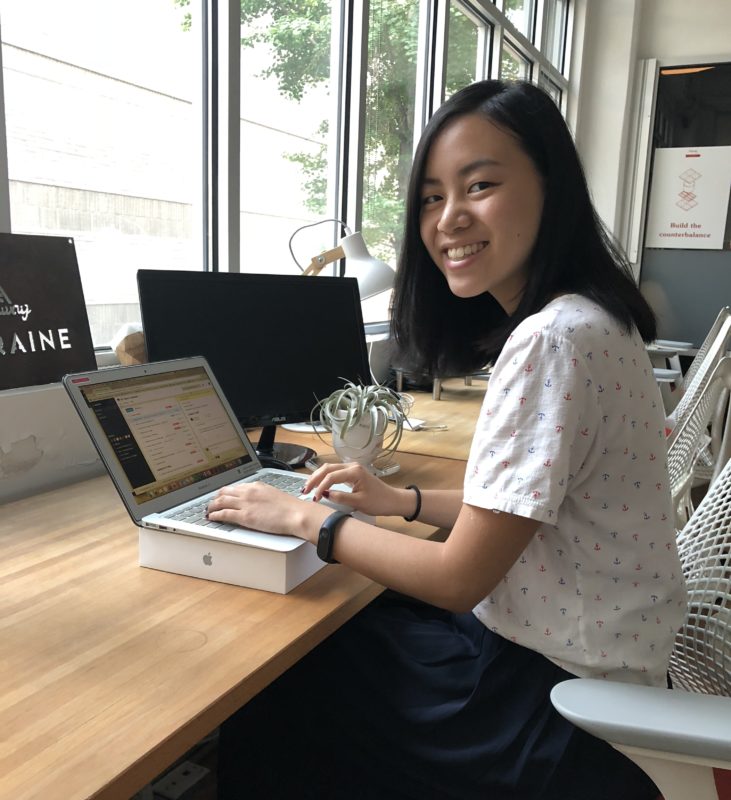Our summer marketing intern, Lucy Dong, writes about being a college student in an age where ‘self-care’ is trending and how that conflicts with the 24/7 demands of our digital age.

Being a college student has certain perks: your best friends live next door, you engage in fascinating research, join dance clubs, and develop your passions.
And while often regarded as the four most exciting years of many people’s lives, college is also associated with a lot of stress, unhealthy habits, and a lack of balance between work and leisure.
According to a study by the American Psychological Association, millennials report the worst sleeping habits of all adults and are more likely to report consequences of those unhealthy sleeping habits.
In my first days at Getaway, I was struck by the difference between my life at school and my life working full-time. Because this company places such an emphasis on healthy work-life balance, I can dedicate myself fully to the workday and not worry about answering emails after I leave the office.
But at school there are no out-of-office messages, no “working from home”; you live where you work, and vice-versa. It’s not uncommon to find people getting a few hours of a shut-eye on a library couch while finishing a big project. I’ve written entire papers from my bed. Weekends are as much for catching up on assignments as they are for blowing off steam.
This blurred line of separation between work and leisure and its detrimental effects have not gone unnoticed. And it’s not uncommon for recently graduated students to find that the transition into working life is not so drastic. Nights spent in the library are swapped for nights in the office, and writing papers from the dorm room are swapped for answering emails from the apartment. It’s no wonder that many of today’s workers practice the same behaviors they learned as sleep-deprived students and experience the same 24/7 anxiety.
On campus, discussions of how to improve student health are increasingly ubiquitous, but visible forms of self-care are largely performative. For all the times I’ve seen my classmates discuss self-care—in the guest column of the school newspaper, on their Instagrams, and elsewhere—I rarely see what is being preached, practiced consistently. The problem on college campuses is that self-care is only popular as discourse or worse, as a hashtag – not as action.
The problem on college campuses is that self-care is only popular as discourse or worse, as a hashtag – not as action.
How did ‘self-care’ become so surface level? We hold ourselves and each other to impossible standards: we must hold multiple leadership positions, volunteer, do research, take full course loads, recruit for internships, but also party and work out regularly. At some point it becomes unrealistic to maintain anything more than an image of perfect health, achievement, and #selfcare.
Students have the opportunity and responsibility to build a counterculture to modern anxiety and burnout in the workplace by confronting parallel issues on campus. Something this big can start at even the individual level: dedicating to just one or two extracurriculars, going to the academic advising center to improve time-management, and even considering work-life balance ratings as part of the job search.

When everyone around you is going at warp speed, slowing down can feel like being left behind. But if students can try to dedicate themselves to embracing self-care for themselves (and not just for social media), campus culture can eventually reflect that.
Work culture can also reflect that. My time with Getaway has already proven that not only can balance exist in the workplace, but also that both businesses and their workers benefit from a real culture of balance – not just the rhetoric surrounding it. And that’s a lesson I will carry with me to all future work environments, on campus and off.
Stressed out from your studies? Check out our new Student Program.
